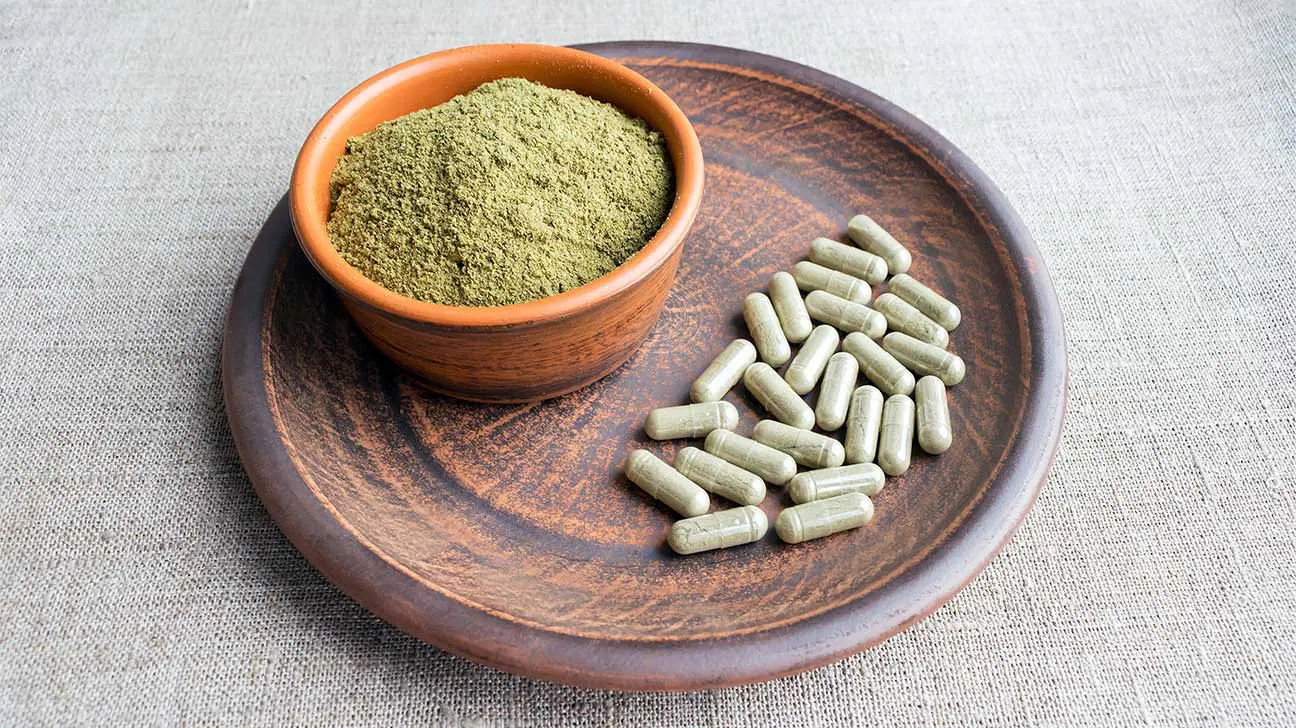
Kratom (Mitragyna speciosa) is a tropical tree that’s become a popular herb for recreational use in the United States. Kratom leaves contain psychotropic chemical compounds that are highly sought after in powder, extract, or pill form.
While the drug is not currently considered an illegal substance, it is marketed for sale in packaging that lists the product as “not safe for human consumption.”
While some individuals chew kratom leaves or brew the dried leaves in tea form, rectal administration (plugging) has become an increasingly popular method of abusing the drug.
Currently, Americans have limited access to Kratom and often get the drug from other locations in southeast Asia, such as Indonesia.
Kratom is also known by the following street names:
- Biak
- Ketum
- Kakuam
- Ithang
- Thom
In addition to anal plugging, chewing, and drinking Kratom in tea form, snorting and rubbing the drug are also popular methods of administration.
What Is Plugging Kratom?
Plugging Kratom refers to the administration of the soluble drug into the body through the rectum. This route of administration is often used by people who may have a Kratom addiction.
Those with a drug addiction may prefer the anal administration, as it leads to faster effects and direct absorption of the drug through the small intestine when compared to snorting, intervenous injection, or oral consumption.
Plugging Kratom leads to higher levels of the drug being present in the circulatory system and widespread distribution to the body.
This method of abuse bypasses the liver’s filtering and metabolizing processes that takes place during oral ingestion.
Anal plugging may be influenced by the form of available kratom. Kratom is often sold as a kratom powder, kratom tea, kratom capsules, kratom extract, or gum. Plugging kratom commonly involves mixing the drug with water until a paste form is produced.
The drug is then inserted into the anal cavity with the use of a syringe.
Side Effects Of Plugging Kratom
Plugging Kratom can cause adverse side effects that include effects from the drug itself and improper anal administration.
Kratom use through plugging may cause the following side effects:
- anal irritation, infection, and discomfort
- exposure via contaminated syringe to diseases such as HIV and Hepatitis
- worsening of preexisting health conditions of the digestive system
- indigestion, diarrhea, and constipation
Plugging Kratom may have adverse effects when combined with other common prescription medications, including antidepressants, illegal drugs, certain foods, and other natural medicines.
Side effects of kratom drug use include:
- aggression
- hallucinations
- skin color changes
- nausea
- vomiting
- slow breathing
Kratom use may cause some individuals to experience psychotic episodes that include hallucinations, delusions, or confusion.
People who have underlying mental health concerns or chemical imbalances may be more prone to side effects when taking the drug.
Kratom side effects may last upwards of five hours.
Kratom Withdrawal
Like other drugs that produce opioid-like effects and opioid withdrawal, kratom might cause chemical dependence as the brain becomes reliant on kratom’s presence in the body.
People who use Kratom may feel physical withdrawal symptoms when they stop taking the drug and begin to detox.
Kratom withdrawal symptoms include:
- chronic pain
- insomnia
- irritability
- mood swings
- hostility
- aggression
- runny nose
Kratom Addiction Treatment
Kratom is not regulated as other addictive substances that cause chemical dependency and addiction, however, abuse of this drug may lead to these effects.
People who use Kratom recreationally may become addicted to the drug and find it difficult to discontinue use.
Plugging kratom may lead to psychological and chemical dependence, and other dangerous side effects.
People who plug Kratom may be at higher risk of experiencing adverse side effects and withdrawal symptoms similar to opiate withdrawal when stopping the drug.
When a person struggles to stop using Kratom after experiencing negative side effects, or uses the drug to avoid facing stress and other responsibilities, it may be necessary to seek substance use disorder treatment.
If you or a loved one is addicted to Kratom, or if you have any questions about substance abuse treatment programs, please connect with our treatment center through our helpline today.
Addiction Resource aims to provide only the most current, accurate information in regards to addiction and addiction treatment, which means we only reference the most credible sources available.
These include peer-reviewed journals, government entities and academic institutions, and leaders in addiction healthcare and advocacy. Learn more about how we safeguard our content by viewing our editorial policy.
- National Institute on Drug Abuse — Kratom Drug Facts
https://www.drugabuse.gov/publications/drugfacts/kratom - National Center for Biotechnology Information — Kratom Use and Toxicities in the United States
https://pubmed.ncbi.nlm.nih.gov/31099038/ - National Center for Biotechnology Information — The Trouble With Kratom: Analytical and Interpretative Issues Involving Mitragynine
https://pubmed.ncbi.nlm.nih.gov/31424079/


